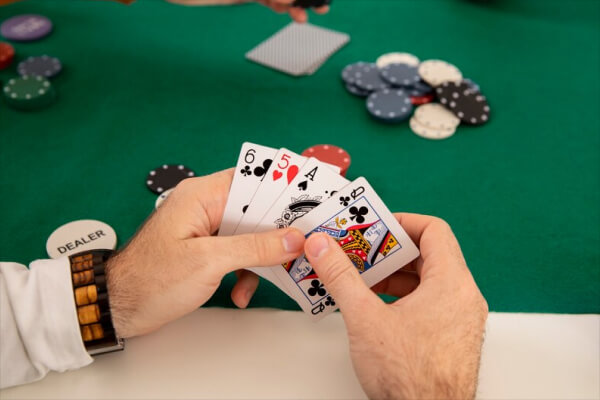A fascinating trick-taking card game, spades has captivated players since its American debut in the 1930s. Since its 1940s inception, spades has become a beloved classic game. In both casual and competitive card-playing circles, its combination of strategy, talent, and a little chance makes it a mainstay.
This book will provide a complete rundown of Spades, including setup, rules, bidding, gaming mechanics, scoring system, and some tactical pointers to improve your game.
The Basics of Spades
Four players split up into two pairings play spades most of the time. A 52-card deck with the Ace ranking highest and the two ranking lowest is handed to each player in 13 cards. The object of the game is to win tricks in order to be the first partnership to accumulate 500 points. Being the trump suit at all times, the suit of spades has a special function in deciding trick winners.
Players and Setup
Players: Four players usually form two pairs in spades, with partners seated straight across from one another.
Deck: There are 52 cards in all, ranging from Ace (high) to 2 (low).
Goal: The main aim is for one pair to score 500 points before the other.
Setup: Partnerships are seated across from one another. A dealer is selected, who hands each player thirteen cards after rearranging the deck.
Bidding
Bidding is a crucial aspect of Spades, as it sets the stage for each hand. The player to the dealer’s left begins the bidding process.

Bidding Rules
- Each player evaluates their hand and makes a bid, which is the number of tricks they believe they can win.
- Bids can range from 0 (Nil) to 13, and players cannot pass.
- The total bid for each partnership is the sum of their individual bids, representing the number of tricks they must win to score points.
Example of Bidding
Consider the following bids: John bids 4, Beth bids 3, Charlie bids 2, and David bids 2. The partnership targets are:
- John and Charlie need to win at least 6 tricks.
- Beth and David need to win at least 5 tricks.
Bidding Nil
A player can bid Nil if they believe they will not win any tricks during the hand. Successfully achieving Nil earns the partnership a 100-point bonus, but winning any tricks results in a 100-point penalty.
Also See: Spades vs. Hearts: Which One is Better?
Double Nil
Before viewing their cards, a player may bid Double Nil (or Blind Nil). After making this bid, the player can exchange three cards with their partner. Success in Double Nil earns a 200-point bonus, while failure incurs a 200-point penalty. Partners can both bid Double Nil without exchanging cards, aiming for a 400-point bonus or risking a 400-point penalty.
Gameplay

The player to the dealer’s left leads the first trick. Here are the key rules for gameplay:
Leading and Following Suit
- The leading player can play any card except a spade unless they only have spades.
- Players must follow the suit led if possible.
- If a player cannot follow suit, they can play a spade (trump) or any other card.
Winning Tricks
- A trick is won by the highest card of the suit led unless a spade is played.
- If spades are played, the highest spade wins the trick.
- The winner of the trick leads to the next one.
Breaking Spades
Spades cannot be led until they are “broken,” which occurs when a player who cannot follow suit plays a spade. This can also happen if a player has only spades left.
Example of Trick Play
If John leads with a heart, Beth and Charlie follow with hearts. David, having no hearts, can choose to play a spade or another suit. If David plays a spade, spades are broken for future plays.
Scoring
Scoring in Spades is straightforward but includes penalties for failing to meet bids or accumulating too many extra tricks (bags).
Scoring Bids
Each trick won as part of a bid scores 10 points.
Tricks above the bid count are 1 point each.
Example of Scoring
If Beth and David bid 5 tricks and win 7, they score 52 points (50 for the bid plus 2 for the extra tricks).
Penalties for Missing Bids
If a partnership fails to meet its bid, they score -10 points for each trick bid.
Nil and Double Nil Scoring
- A successful Nil bid earns a 100-point bonus; failure results in a 100-point penalty.
- A successful Double Nil bid earns a 200-point bonus; failure results in a 200-point penalty.
- Tricks won by a failed Nil bid do not count towards the partner’s bid but do count as bags.
Sandbagging Penalty
To prevent sandbagging (intentionally underbidding), each partnership receives a 100-point penalty for every 10 bags accumulated throughout the game.
Example of Sandbagging
If John and Charlie bid 4 tricks but win 7, then bid 3 and win 6, and finally bid 4 and win 9, they accumulate 11 bags (3+3+4+1). This results in a 100-point penalty, with the additional bag carrying over.
Strategy and Tips
Evaluate Your Hand
Accurately assessing your hand’s strength is crucial for successful bidding and gameplay. Pay attention to high cards, long suits, and potential trump cards to make informed bids.
Communicate with Your Partner
Non-verbal communication is key in Spades. Pay attention to your partner’s plays and adjust your strategy accordingly. If your partner bids high, support them by trying to win tricks with your high cards.
Manage Your Bags
While winning extra tricks (bags) can provide points, accumulating too many can lead to penalties. Aim to meet your bid without significantly exceeding it.
Timing Spades
Spades can be powerful trump cards. Save them for critical moments when they can win a trick or break an opponent’s lead.
Plan for Nil Bids
If you or your partner bids Nil, strategize to protect the Nil bidder by winning tricks early and allowing the Nil bidder to play low cards.
Watch the Score
Keep an eye on the overall score and adjust your strategy to protect your lead or catch up to your opponents. Sometimes a conservative approach can help maintain a lead, while a more aggressive strategy might be necessary to overcome a deficit.
Continuing Play and Winning
The dealer function moves to the left after each hand when scores are totaled, and no partnership has achieved 500 points. The game goes on up to a pair scoring 500 points. The greater scorer wins if, in the same hand, both partnerships earn 500 points. Should a tie arise, the winner is decided by playing another hand.
Conclusion
Players of the strategic and entertaining card game Spades must strike a balance between risk and profit both during bidding and play. Adroit play, prudent bidding, and rule knowledge may all result in success. A classic and entertaining card game, Spades offers the excitement of anticipating and earning tricks to players of all skill levels. Assemble your buddies, make alliances, and feel the thrill of Spades.




